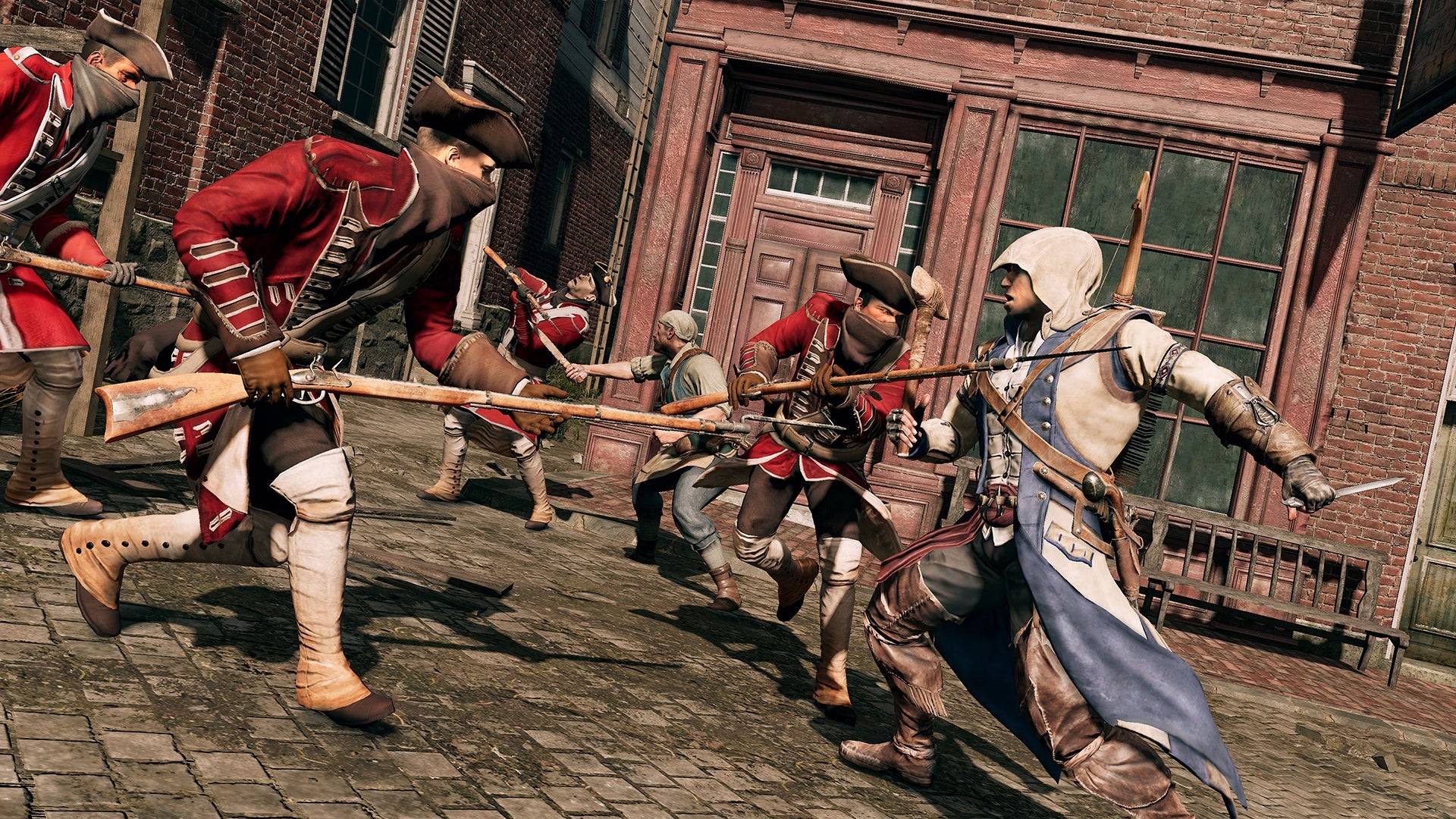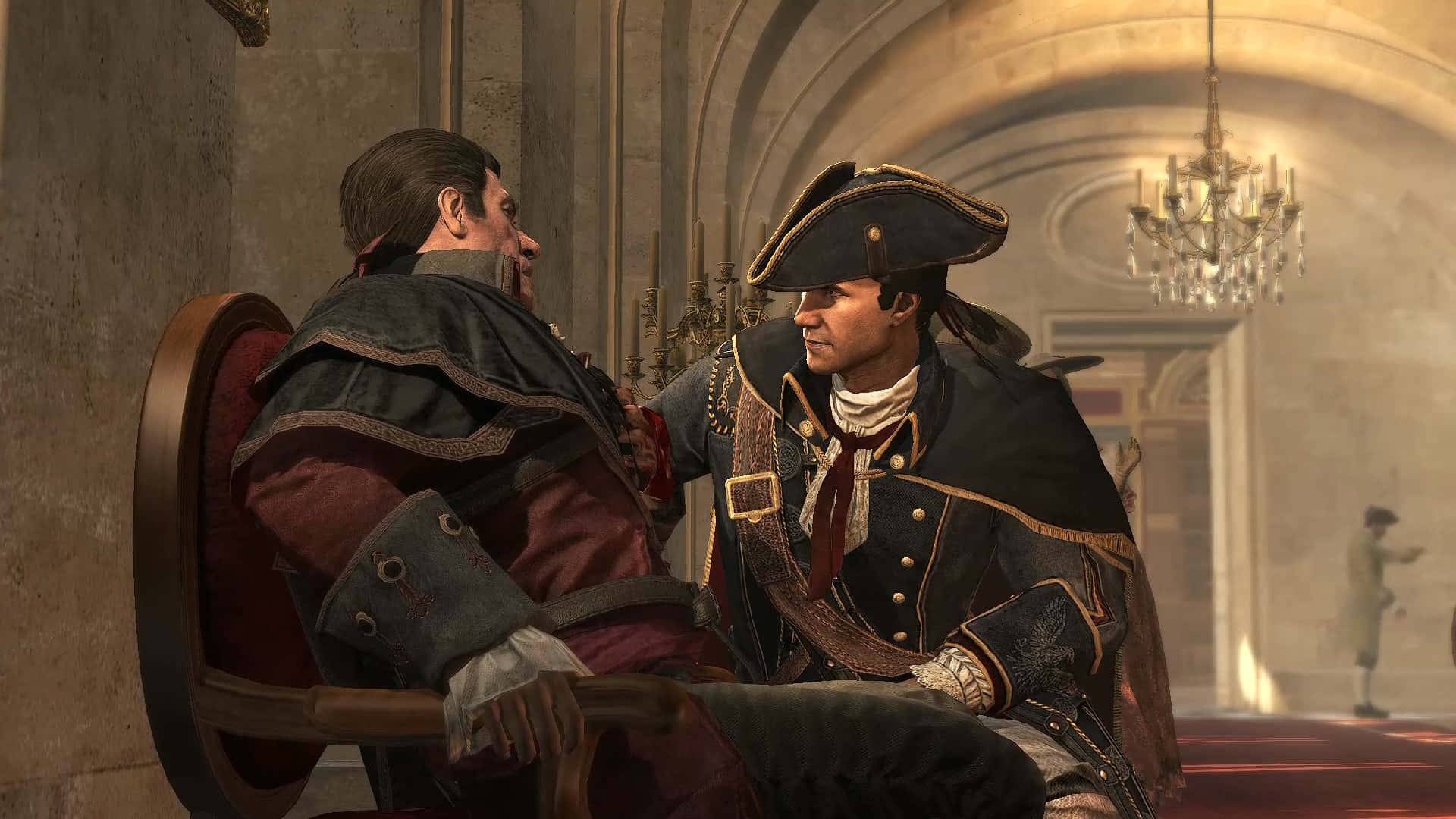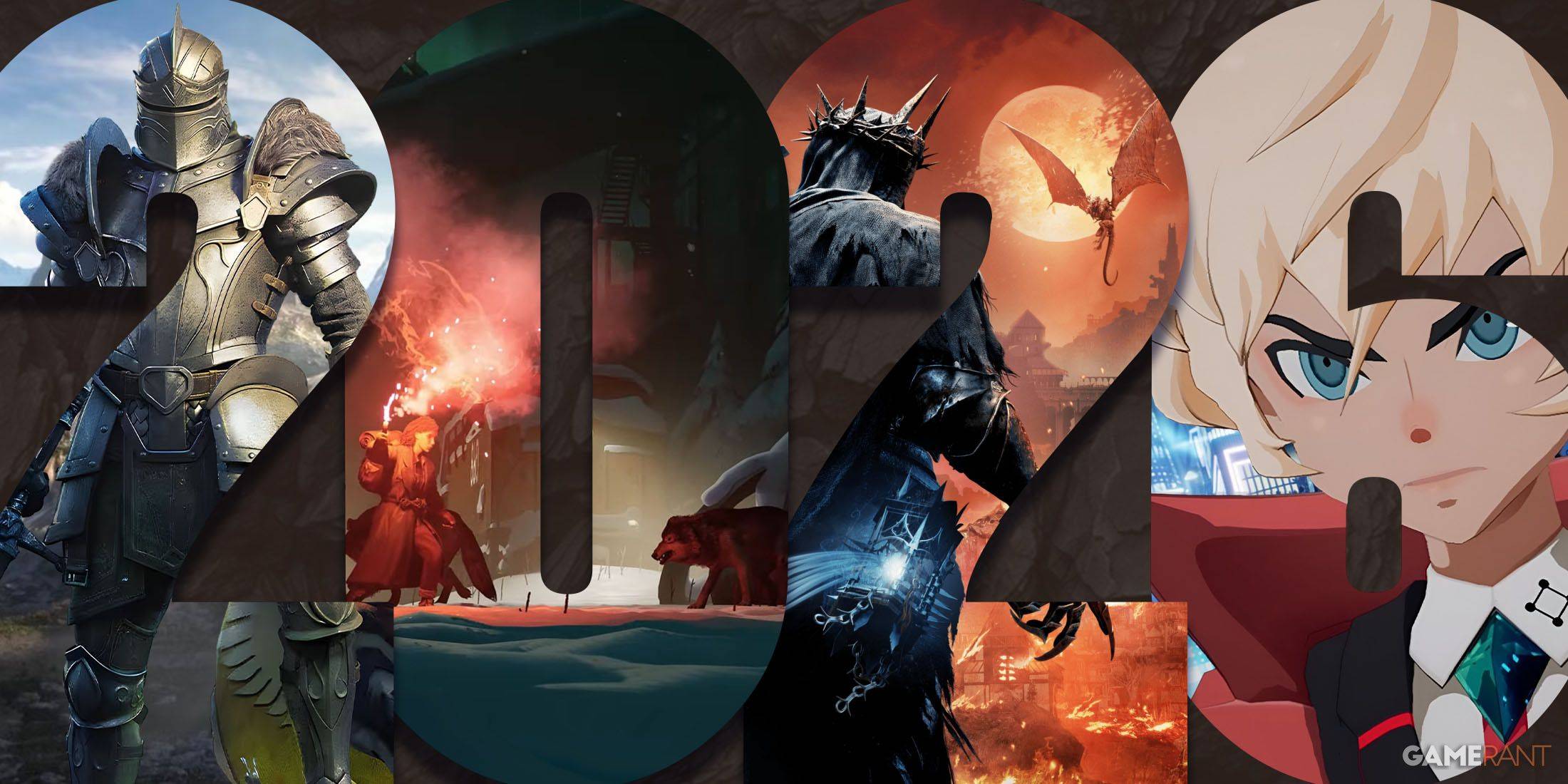Why Assassin's Creed 2 and 3 Had the Best Writing the Series Has Ever Seen
One of the most iconic moments in the Assassin's Creed series unfolds early in Assassin's Creed 3, when Haytham Kenway assembles his team in the New World. Players are initially led to believe they are joining a group of assassins, given Haytham's use of a hidden blade and his charismatic demeanor reminiscent of the series' beloved protagonist, Ezio Auditore. Up to this point, Haytham has played the hero, liberating Native Americans and confronting British redcoats. The revelation comes when he utters the phrase, "May the Father of Understanding guide us," making it clear that we have been following the Templars, the sworn enemies of the Assassins.
This twist exemplifies the pinnacle of Assassin's Creed's storytelling potential. The original game introduced a compelling concept of tracking, understanding, and eliminating targets, yet it struggled with character development, leaving both Altaïr and his targets lacking personality. Assassin's Creed 2 improved on this by introducing the iconic Ezio, but it still fell short in developing its antagonists, such as Cesare Borgia in Assassin's Creed: Brotherhood. It wasn't until Assassin's Creed 3, set against the backdrop of the American Revolution, that Ubisoft fully fleshed out both the hunted and the hunter. This approach created a seamless narrative flow and a perfect balance between gameplay and story, a harmony that subsequent games have yet to match.
 While the current RPG era of Assassin's Creed has been well-received, a growing consensus among players and critics suggests the series is on a downward trajectory. Theories about this decline vary. Some argue it's due to increasingly fantastical elements, like battling mythological figures such as Anubis and Fenrir. Others criticize the addition of diverse romance options or the introduction of historical figures like Yasuke, the African samurai, in Assassin's Creed Shadows. Personally, I believe the series' decline stems from moving away from character-driven narratives, which have been overshadowed by expansive sandbox environments.
While the current RPG era of Assassin's Creed has been well-received, a growing consensus among players and critics suggests the series is on a downward trajectory. Theories about this decline vary. Some argue it's due to increasingly fantastical elements, like battling mythological figures such as Anubis and Fenrir. Others criticize the addition of diverse romance options or the introduction of historical figures like Yasuke, the African samurai, in Assassin's Creed Shadows. Personally, I believe the series' decline stems from moving away from character-driven narratives, which have been overshadowed by expansive sandbox environments.
Over time, Assassin's Creed has evolved from its action-adventure roots to incorporate RPG and live service elements, including dialogue trees, XP-based leveling, loot boxes, and extensive gear customization. However, as the games have grown larger, they've begun to feel more hollow. This is evident not only in the repetitive side missions but also in the storytelling itself.
For example, while Assassin's Creed Odyssey offers more content than Assassin's Creed 2, much of it feels less polished and less immersive. The inclusion of player choice through dialogue and actions, meant to enhance immersion, often results in scripts that feel stretched thin, lacking the sharpness of the series' earlier, more focused narratives. The character development in the Xbox 360/PS3 era, exemplified by Ezio's passionate declaration, "Do not follow me, or anyone else!" after defeating Savonarola, and Haytham's poignant final words to his son Connor:
"Don't think I have any intention of caressing your cheek and saying I was wrong. I will not weep and wonder what might have been. I'm sure you understand. Still, I'm proud of you in a way. You have shown great conviction. Strength. Courage. All noble qualities. I should have killed you long ago."
 The narrative quality has also suffered in other ways. Modern games often oversimplify the conflict to a clear-cut battle of good versus evil, whereas earlier games explored the nuanced moral gray areas between Assassins and Templars. In Assassin's Creed 3, each Templar's final words challenge Connor's beliefs, prompting the player to question their own. William Johnson suggests the Templars could have prevented Native American genocide, Thomas Hickey labels the Assassins' mission as unrealistic, and Benjamin Church argues that perspectives shape reality, with the British viewing themselves as victims. Haytham himself challenges Connor's faith in George Washington, predicting the despotic nature of the new nation—a prediction reinforced when it's revealed that Washington, not Haytham's ally Charles Lee, ordered the burning of Connor's village. By the game's end, the narrative leaves players with more questions than answers, enriching the story.
The narrative quality has also suffered in other ways. Modern games often oversimplify the conflict to a clear-cut battle of good versus evil, whereas earlier games explored the nuanced moral gray areas between Assassins and Templars. In Assassin's Creed 3, each Templar's final words challenge Connor's beliefs, prompting the player to question their own. William Johnson suggests the Templars could have prevented Native American genocide, Thomas Hickey labels the Assassins' mission as unrealistic, and Benjamin Church argues that perspectives shape reality, with the British viewing themselves as victims. Haytham himself challenges Connor's faith in George Washington, predicting the despotic nature of the new nation—a prediction reinforced when it's revealed that Washington, not Haytham's ally Charles Lee, ordered the burning of Connor's village. By the game's end, the narrative leaves players with more questions than answers, enriching the story.
Looking back, the enduring appeal of "Ezio's Family" from the Assassin's Creed 2 soundtrack, composed by Jesper Kyd, reflects the series' strength in character-driven storytelling. The melancholic guitar strings evoke Ezio's personal loss rather than merely the Renaissance setting. While I appreciate the expansive world-building and graphics of the current Assassin's Creed games, I hope the series will eventually return to its roots, delivering focused, character-centric stories that originally captivated fans. However, in today's market, dominated by vast sandboxes and live service models, such a shift might not align with business strategies.























![Salvation in Nightmare [v0.4.4]](https://imgs.21qcq.com/uploads/36/1719555347667e551321c26.jpg)




